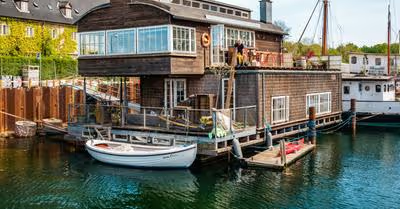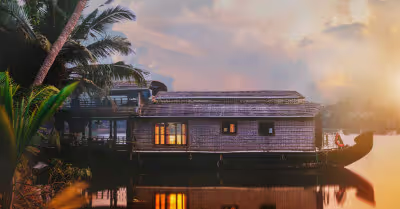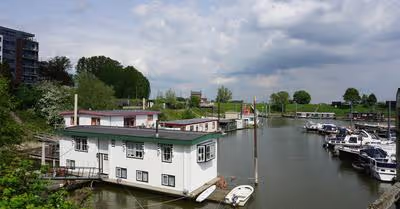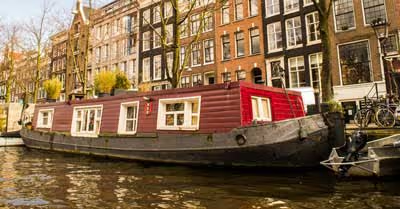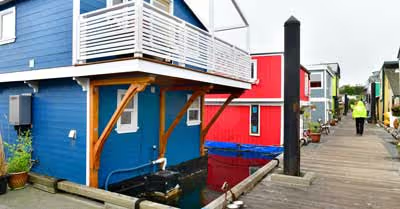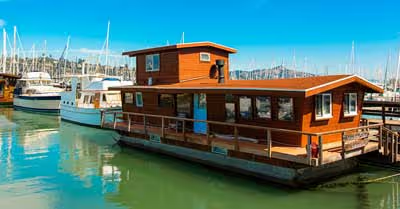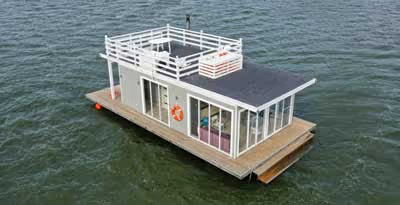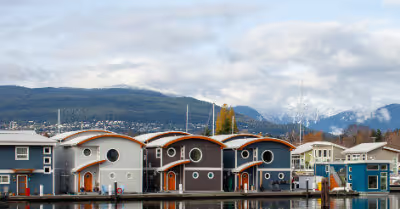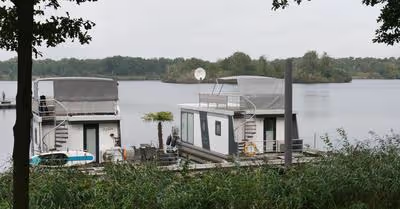
Motorized and stationary houseboats are unique vessels that require careful consideration when choosing the best place to dock.
The best places to dock a houseboat are rivers, lakes, channels, canals, and well-protected harbors. Freshwater is ideal, as saltwater causes corrosion. Marinas that offer power, water, and sewage pump-outs are the best choice for safety and convenience.
In this article, we'll start by covering the unique docking requirements for houseboats. Then, we'll overview some of the best places to dock a houseboat, including marinas and common alternative setups. Additionally, we'll go over the steps to choosing the best place to moor a houseboat.
We sourced the information for this article from houseboat owners and marinas that cater primarily to houseboats. Additionally, we carefully considered the recommendations of houseboat dealers and manufacturers.
Saltwater vs. Freshwater
Houseboats can be docked in both saltwater and freshwater. However, most houseboat owners agree that freshwater is a much better option. This is because freshwater is much less harsh on virtually all parts of your boat, especially those made of metal.
Saltwater is highly corrosive and reduces the service life of your vessel. It corrodes electrical components, damages paint, and often has a distinct 'marine' smell. Freshwater leaves no residue, and it can reduce maintenance labor and costs significantly.
Houseboat Mooring Requirements
What are the requirements to dock your houseboat? It depends primarily on what type of houseboat you have and its size. Houseboats are wider than standard recreational watercraft and often need larger slips to be accommodated. Usually, marinas will allow larger vessels and houseboats to take up a whole double slip where two vessels would normally be docked.
Winter is an important consideration for all houseboats, regardless of the type. If you plan on docking your houseboat in an area where the water commonly freezes over during the winter, you'll have to take special precautions and prepare your boat. You don't necessarily have to pull your boat out of the water, but you will have to winterize it seasonally.
Wherever you dock your houseboat, you'll have to ensure there's easy access to utilities. Virtually all marinas have dedicated power and water hookups, and many have broadband internet as well. Unconventional docking locations, such as along the edge of a river or nondescript industrial docs, aren't likely to have utilities and may not be ideal. Many of these places also have unpredictable tides and currents.
Other factors, such as whether or not your houseboat is self-propelled, also play a part. Some marinas have designated areas for large, stationary vessels and barges. Long docks are an excellent place to moor houseboats of every type. Here are the typical docking requirements for stationary and motorized houseboats.
Where to Moor a Stationary Houseboat
Finding a mooring for a stationary houseboat can be tricky, especially on the coast. Stationary houseboats are the least seaworthy variety and thus need to be protected from weather and boat wakes. Coastal marinas are out of the question, as these vessels are not suited for ocean conditions.
Stationary houseboats are often found in protected areas, such as the edge of a lake or reservoir. They can also be docked in river channels where the current isn't too strong or in their own little 'floating neighborhoods' in protected waters. Houseboats like this are often found in clusters, as there may only be one or two ideal docking locations in any given area.
Where to Moor a Motorized Houseboat
Motorized houseboat owners have a lot more flexibility when choosing a place to dock. Motorized houseboats can maneuver and tend to be relatively seaworthy, so there more often found and coastal marinas. That said, even motorized houseboats have their limits, so it's best to find a dock that's protected by at least a substantial shoal.
Motorized houseboats are extremely popular on rivers and lakes. The larger the lake, the more likely you'll find a suitable place to dock your houseboat. Well-known tourist lakes from New York to Arizona are well-populated with houseboats, and there are plenty of safe and spacious places to dock.
Lakes and Lagoons
Lakes are usually houseboat-friendly. This is because lakes are protected, and they rarely subject houseboats to weather conditions that are beyond their capabilities. Additionally, motoring around on a lake is very pleasant and ideal for large, slow, and boxy boats. As a result, most lakes that allow motorized watercraft have a substantial houseboat presence.
Lakes are also very popular destinations for houseboat retirees, as there are thousands of potential locations to choose from. You can find a lake and virtually any climate and environment, including deserts (that are warm year-round) and dynamic mountain ranges.
Rivers
Rivers are almost as popular for houseboats as lakes because rivers tend to run adjacent to major cities. This is especially convenient for those who work in these locations, as their houseboat is rarely far from their place of employment.
Docking on a river is also relatively cheap comparatively, as conditions tend to be favorable in lots of places. After all, many houseboats share design characteristics with classic riverboats and barges. One consideration when choosing a river is current, as it's difficult to safely dock in areas with strong hydraulic forces.
Channels and Canals
Channels and canals are often dug in areas with a large industrial presence, though they are also found running along some major modern cities. For example, San Francisco has a large channel near AT&T Park that's extremely popular with both stationary and motorized houseboats.
Conditions and channels are usually calm and predictable, and there are often plenty of places to tie up. If you manage to get utilities wired up, a channel or canal can be the perfect place to moor your houseboat.
Harbors and Marinas
Harbors and marinas of any type are usually the first choice when choosing where to moor a houseboat. This is because marinas provide easy access to utilities, offer straightforward docking fees, and come with a built-in boating community.
The primary drawback to marinas is their cost, as docking at one can incur a great expense (especially in popular areas). But from a safety and convenience standpoint, it doesn't get any better than a well-kept marina in calm and well-protected waters.
Choosing a Houseboat Marina
Once you've chosen a location, it's time to pick a marina to dock your vessel. Choosing a marina can be a difficult task, as the best places to moor a houseboat tend to have more than one option.
The first consideration is the condition of the marina and the characteristics of the waters surrounding it. If the location is clean and the water deep, it's a good sign. Be sure to visit at low tide to make sure houseboats aren't stuck in the mud.
Make sure that utilities are available and affordable as well. Cost is a very important factor as well, and it's important to call ahead. This is because two marinas located right next to each other could have vastly different pricing, and long-term rates may be available as well.
Also, be sure to inquire about the marina's liveaboard rules if you tend to make the boat your primary or temporary residence. Some marinas actively encourage living aboard, and most tolerate it—but others actively prohibit it. Waste pump-out stations are also a necessity, and the best houseboat marinas offer permanent sewage lines.
The final consideration is transportation. If your houseboat isn't in the water, you'll need to find a boat crane or a large ramp to get it in. Once all these conditions are met, you can work out an arrangement with the marina management.



